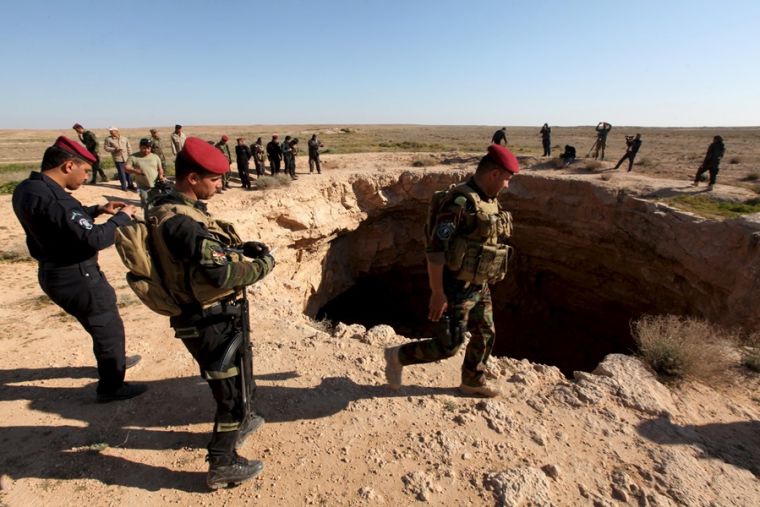Fears of ISIS 'dirty bomb' mount as 'highly dangerous' radioactive device goes missing in Iraq

Iraq is hunting for a "highly dangerous" radioactive device that went missing last year amid fears this could be utilised to make a "dirty bomb'' if it falls in the wrong hands like the Islamic State (ISIS).
The material, stored in a secured case, disappeared in a storage facility near the southern city of Basra in November, according to an unnamed government official in Baghdad, Fox News reported.
A leaked environment ministry document states "the theft of a highly dangerous radioactive source of Ir-192 with highly radioactive activity belonging to SGS from a depot overseen by Weatherford in the Rafidhia area of Basra province,'' according to Reuters.
The device contained up to 10 grams (0.35 ounces) of Ir-192 "capsules,'' a radioactive isotope of iridium also used to treat cancer, said a senior environment ministry official based in Basra.
The missing material is reportedly used "to test flaws in pipelines in a process called industrial gamma radiography, and was owned by Istanbul-based SGS Turkey." It was last in the possession of Houston-based oil industry contractor Weatherford.
A spokesman for Iraq's environment ministry said he could not discuss the issue any further due to national security concerns. A Weatherford spokesman in Iraq also declined to comment, reports said.
In a statement, Weatherford said SGS was responsible for safeguarding the material. "Weatherford has no responsibility or liability in relation to this matter because we do not own, operate or control sources or the bunker where the sources are stored. SGS is the owner and operator of the bunker and sources and solely responsible for addressing this matter."
Classified as a Category 2 radioactive source by the International Atomic Energy Agency, the material is believed to be "lethal for someone exposed to it for a period of hours.''
David Albright, a physicist and president of the Washington-based Institute for Science and International Security, said the device ""could cause harm simply by being left exposed in a public place for several days."
"If they left it in some crowded place, that would be more of the risk,'' he said.
A spokesman for Basra command said military forces were working "day and night'' to locate the material. He added that the perpetrators were believed to be privy with the weapon or know what they were doing since there were "no broken locks, no smashed doors and no evidence of forced entry at the facility."
The U.S. intelligence office earlier confirmed that the ISIS has manufactured and deployed a chemical weapon, specifically "sulfur mustard" in Syria and Iraq.
Meanwhile, U.S. officials estimate that there are more than 26,000 ISIS fighters killed by coalition since it began airstrike operations in 2014.
The number is a "sharp increase'' from the figure in 2015, which was estimated at 8,500 ISIS fighters killed, CNN reported, citing a testimony from Gen. Lloyd Austin, head of the U.S. Central Command.











